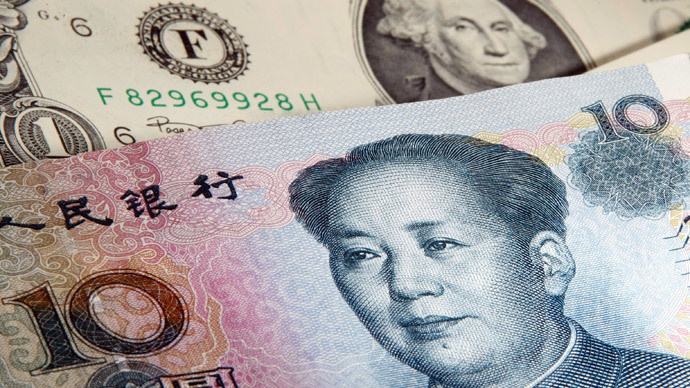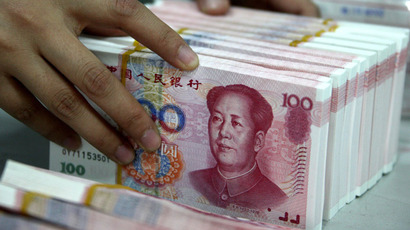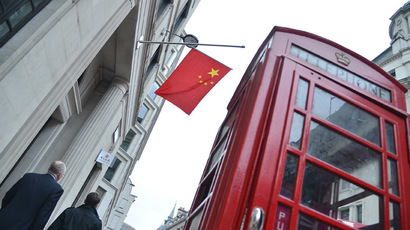Yuan can become dominant world reserve currency – survey

The Chinese yuan can overtake the dollar as the leading international reserve currency, a new poll of institutional investors indicates.
The authors of the survey, conducted by the Economist Intelligence Unit and commissioned by State Street financial services, polled 200 senior executives at institutional investors with knowledge of their exposure to yuan assets. Half of the respondents were from the firms headquartered in mainland China (including Hong Kong and Taiwan) and the other half were based elsewhere.
The report accompanying the survey points out that by the end of 2013, the yuan has risen to become the second-most-used trade financing currency and ninth-most-used currency for payments globally.

A majority – 53 percent of respondents said that they believe the yuan will one day surpass the dollar as the top currency in international holdings of foreign-exchange reserves. In China 62 percent expressed this opinion, compared to 43 percent of respondents outside the country.
Last May International Monetary Fund analysis showed that the dollar had slumped to a 15-year low, heightening concerns that it may lose that status as global reserve.
Chinese officials are diligently working on sustaining their national currency, promoting it beyond the frontier. In October 2013, the government of China agreed a pilot program to create a UK based yuan hub that allows London investors to buy up to $13.1 billion (80 billion yuan) of stocks, bonds and money market instruments directly, avoiding Hong Kong transactions.
The move gave the yuan a firmer footprint in Europe and helped to overcome the euro in December, becoming the second most widely used currency in global trade.
Only 11 percent of respondents have said that they do not expect the yuan to become a major reserve currency, a split between 16 outside China and six onshore, according to the poll. Among the former, the most often cited reasons are that the yuan will never enjoy enough liquidity across all asset classes to offer a viable option as a reserve currency, and that people will not trust the yuan as a store of value, the survey says.
The very few pessimists from China-headquartered institutions, meanwhile, say that people would be “concerned about future policies of the Chinese government and opposition from other economic powers, such as the US, the EU and Japan.”
But the consensus is that one day it will be a yuan world, according to the survey.
"As China's economic influence grows, the global importance of the renminbi (yuan) will become magnified. Indeed, while for decades it has been a 'greenback world', dominated by the US dollar as the world's primary reserve currency, many think a 'redback world', in which the renminbi enjoys premier status, is increasingly a possibility," the survey’s authors concluded.
Ruslan Aymalov, Business RT














